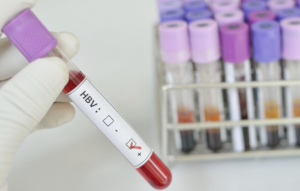What is a Titer Test for Dogs?
Table of Contents
In more recent years there has been a growing movement away from conventional vaccinations in both humans and pets – specifically dogs in this case. This is largely due to a now debunked theory that vaccinations somehow cause, lead to or contribute to the effects of autism in young children and a variety of other adverse reactions related to vaccines. This aversion to vaccines is becoming more and more of a serious health issue these days, as diseases that were once down to low and controllable levels are now occurring more regularly because people are not protected from them.
When we are given a vaccine, we are essentially being given a small amount of the disease that we are trying to protect ourselves against. Although it’s important to note that the disease has been weakened or is already dead – this is so that you don’t actually get infected. However, once introduced to your system, your body reacts to the threat by producing proteins known as antibodies to attack and neutralize the threat. By giving yourself the vaccination, you are essentially training your body to be ready to face that particular disease in the future. This means that you are less likely to have a serious reaction to that disease in particular and ultimately lead a healthier life.
The problem with people who decide not to vaccinate their children or their pets is that it makes the point of vaccinations redundant. They are still susceptible to infection and can therefore infect others who are not vaccinated, have weakened immune systems (such as those with autoimmune disorders) and it allows diseases to grow and evolve into more advanced forms.
This makes treatment more of a challenge in the future and can ultimately lead to the formation of deadly superbugs – that are untreatable! This is because the bacteria manage to outgrow or evolve past our current methods of treatment and ultimately become immune to the treatments themselves. It’s a serious issue, as it means that something like the common flu infection can become a deadly virus, or that measles (a serious, but otherwise treatable disease) can evolve into something far more serious than it already is. So in my opinion, vaccines are a necessity for future generations.
The Titer test was invented to help us get a better idea of how often we may need to get a specific vaccine or which vaccine we may need at any given time. It’s often used to asses the health of your pet or before sending them off to a kennel, as dogs without vaccines are liable to infect other dogs in the boarding kennel – which can have serious knock-on effects for the other dogs and their owners.
So if you’d like to find out more about this process, I recommend reading this article. Hopefully it will help you make up your mind about the importance of vaccines in everyday life.
Titer Test Explained

The Titer test is a blood screening that helps to identify the amount of antibodies contained within your system

The Titer test is a blood screening that helps to identify the amount of antibodies contained within your system
In short, the Titer test is basically a blood screening that helps to identify the amount of antibodies (naturally occurring proteins that help to fight off disease and infection) contained within your system at any given time. It is used as an indicator to determine whether you or your pet are in need of a specific vaccination.
It is often implemented by those who are against the idea of vaccination as they can use it to justify not needing a vaccination or putting it off until later. However, this is generally a misconception and the test should, in the opinion of many medical professionals, be used to justify getting a vaccination.
As I explained in the previous paragraph, avoiding vaccinations can have serious consequences in the future for your own health, that of your pet and the health of those around you. It is better to use this test as a method of determining exactly which vaccinations you may need at any given point in time, rather than simply avoiding them altogether.
Pros And Cons Of A Titer Test For Dogs

Titer tests are useful for giving us an indication of how which vaccination we may need

Titer tests are useful for giving us an indication of how which vaccination we may need
To be very honest with you, I feel that many people use Titer tests as a way of justifying not needing to vaccinate their pets – which is a ridiculous form of logic. The reality of the matter is that Titer tests are useful for giving us an indication of how which vaccination we may need to administer at any given point in time – that’s it.
When you consider the cost of a Titer test (which basically results in a piece of paper) and compare that to the cost of simply vaccinating your pet in the first place – you’ll realize that there’s really little use for them unless you’re interested in gauging how much time you have before your next vaccination period.
A Titer test can cost anywhere from $40 to $200 whilst a simple vaccination shot usually costs anywhere from $20 to $40. Although it is true that over-vaccinating is an issue, the reality of the matter is that very few people vaccinate so often that it becomes a cause for concern.
So instead of wasting time and money on a Titer test (unless you really need to identify the specific vaccination needed or for some other medical reason), simply get your pet vaccinated for all the common diseases and infection at least once every 3 years. This is the best way to avoid serious illness or infection and can keep your family and other pets safe too.
If you're a vet or vet nurse interested in titre testing, check out our Facebook page https://t.co/rmnBcK2Gaj #VacciCheck #titretest pic.twitter.com/t5dWrnXF4e
— Complete Vet Care (@CompleteVetCare) December 28, 2016
Where to Get Your Dog A Titer Test
If you decide to get a full laboratory Titer test, the result may take up to several days to show and it’s quite a costly process as there are more steps and procedures involved with this method of testing.
However, due to the increase in demand for these types of tests, two US based companies have developed easy-to-use Titer test kits that can be utilized by veterinarians to get results within 15-20 minutes.
The two companies responsible for these tests are TiterCHEK and VacciCheck – so be sure to ask your vet about these products and whether they stock them. This makes it easier for you and your vet to get a clear idea of what your pet’s antibody count is and therefore, have a clear idea of the which vaccines are needed.
There are two basic outcomes from these tests: a positive one (which means that your pet has protective levels of antibodies against a virus) and a negative one, which does not necessarily mean that your pet is susceptible to infection but that you should consult your vet about the correct steps to follow in this case.
Titer Test vs. Animal Vaccines

Titer tests can help you make decisions regarding your pet’s diet, exercise routines and the medications or treatments that you use

Titer tests can help you make decisions regarding your pet’s diet, exercise routines and the medications or treatments that you use
The Titer test is absolutely not a replacement or a substitute for a proper vaccination and should rather be used as a yardstick to determine whether or not your pet needs a particular vaccination.
It’s also a good indication of your pet’s level of health at any given moment and can help you make decisions regarding your pet’s diet, exercise routines and the medications or treatments that you use. All of these have an effect (whether minor or large) on the quality of your dog’s health and may even affect its antibody count.
In actuality there is no way of comparing one to the other as they are two entirely different things. It’s a matter of apples and oranges here – while they might complement one another, they are in no way the same as each other. It’s as simple as that.
Conclusion
It’s something I cannot stress enough – the importance of vaccinations can be a life or death issue. I’m not just saying this to sound hyperbolic, the reality of being ill-equipped to deal with an advanced form of an illness can have serious, even long-term effects on the quality of your pet’s health.
The same rule applies to humans. Postponing, delaying or simply avoiding vaccinations is not a good idea at all. While utilizing a Titer test can help to give you a clearer indication of which vaccine your pet may need at any given point, they are in no way a reason to avoid them altogether.
So if your pet’s health really matters to you, and the health of your family – I would highly recommend getting them vaccinated during puppyhood or as regularly as needed in the later stages of their life.
While it’s true that there is a risk of over-vaccinating, the reality of this is that it’s much less likely to happen than contracting a serious bacterial infection. It’s always better to safe rather than sorry, and vaccines grant you and your pet a better chance at immunity and ultimately, a healthier life.
No comments yet.